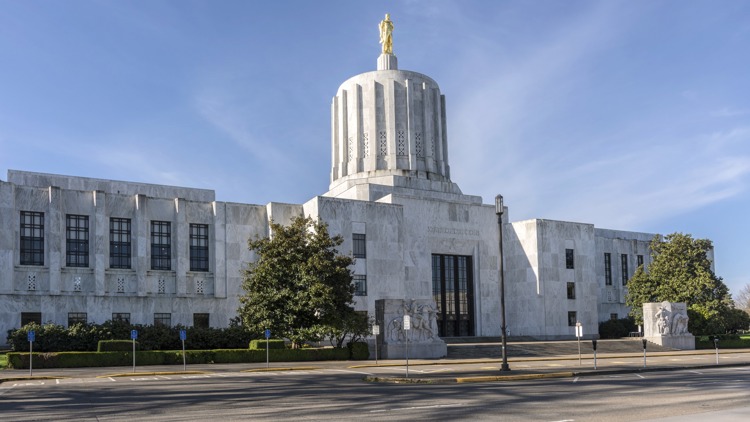The Oregon Legislature gave final passage Wednesday to a bill to protect homeless campers in public spaces.
The measure, which goes to Gov. Kate Brown, mandates that any city or county law must be reasonable if it regulates “sitting, lying, sleeping or keeping warm and dry outdoors on public property.”
Among those championing the bill was Jimmy Jones, executive director of the Mid-Willamette Valley Community Action Agency, which assists those experiencing homelessness.
“The bill before you will regulate the time, place, and manner that public camping can be policed. It will give us a chance to give the people living in these conditions a little dignity, a few more services, and it will give us a chance to show that we believe that the Constitution applies to all of us,” Jones testified to a House committee in March.
The bill passed the House on April 15 and the Senate on Wednesday.
Under the measure, a homeless person charged with violating a ban on camping or loitering would have an affirmative defense against a law that is not objectively reasonable. A person experiencing homelessness may also sue to challenge the objective reasonableness of a city or county law, and be awarded attorney fees if the plaintiff prevails
RELATED: As pandemic protections disappear, hundreds of homeless people to be forced from Salem hotels
Eric Mitton, deputy city attorney for Medford, testified that the city supported the measure because it recognizes the rights of people experiencing homelessness while also recognizing the rights of municipalities to reasonably regulate their public property so it “remains available to all for its intended uses.”
The Marion County Board of Commissioners opposed it, however, saying the measure “would limit local control of the homeless crisis facing Oregon.”
“This bill would place residents in our communities at risk by restricting local government’s power to limit homeless camps,” commissioners Kevin Cameron, Danielle Bethell and Colm Willis wrote.
Legal experts testified that the bill’s standards are consistent with recent federal case law.
The Oregon Law Center noted that the U.S. 9th Circuit Court of Appeals ruled that homeless people cannot be punished for sleeping outside on public property in the absence of adequate alternatives, or unless the law imposes “reasonable time, place and manner” restrictions on regulated activities in public space.
“Passage of (the bill) will preserve the important pieces of the cases in state law, written in a way that has been agreed upon by key stakeholders,” said Becky Straus, staff attorney with the Oregon Law Center.
If Brown signs the bill, it will take effect on July 1, 2023.
Straus said it would force local governments to review their camping and related ordinances “in a way that recognizes the reality of Oregon’s rising rates of homelessness.”



